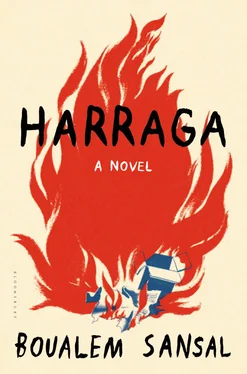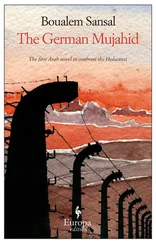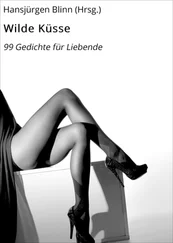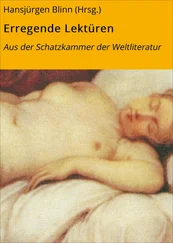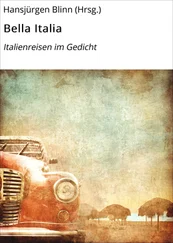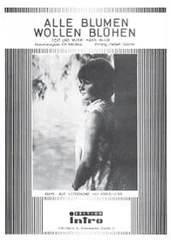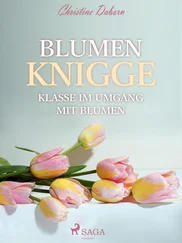It goes without saying that no piece of modern furniture has any place in this house. It would be impossible to get it inside — the doorways and casements let in a gentle breeze, a ray of sunlight, but nothing more. We had a terrible time furnishing the place. Papa nailed up planks and shelves which Maman variously named wardrobe, sideboard, dresser, and two shelves in my room on which I set my small collection of books and my alarm clock. Later, it was Tonton Hocine’s turn to nail up timbers while I took over the naming of the planks. Everywhere in this vast house feels cramped.
As children, we loved it. Playing hide and seek and ‘you’re getting warmer!’ in such an intricate warren was heaven. You can easily end up lost. Louiza and I left the best of ourselves in its mazes and its alcoves. Those things we hid, our choicest secrets, are there to this day, shrivelled, irretrievably lost. Poor, dear Louiza, she was incapable of hiding anything, of finding anything, she trotted after every breeze, panting a little foolishly. ‘Can I put it here, lift me up so I can hide it here,’ she would say with a sigh, ‘… but don’t look!’ We made the most of this house. God, how I miss my beloved little Carrot Cake! How have I lived without her?
I spent the day in the attic, el groni , Papa called it — in his Kabyle accent, he spoke Arabic as if it were French and vice versa. This twofold solecism is the dialect we call pataouète . Here in the attic, two centuries of life lie piled beneath a shroud of thousand-year-old dust. I don’t remember whether we fought wars of attrition, or whether it was simple neglect, but the space has long since been overrun by the pitter-patter of mice. I always intend to go through everything, but I never find the time. Sometimes I come up and rummage through a trunk, a basket, a crate, I ferret around upsetting the mice, panicking the cockroaches, exasperating the spiders who hate to have their gymnastics disturbed. A mantle of fur and hair and glowing eyes suddenly skedaddles. Over there is an old daub, a full-length portrait depicting the master of the house in ceremonial regalia, I have summoned Colonel Louis-Joseph de la Buissière, alias Youssef the Moor, the Christian convert. His gaze speaks volumes about the dignity of imperial wars. I have to admit he’s a handsome man, tall, thin, with reddish hair and bushy sideburns one can guess are dear to his heart, a gold-rimmed monocle magnifies his right eye and a richly engraved sabre hangs by his side. A helmet adorned with feathers and a cockade. The pose is intended to be distinguished, the shoulders are thrown back, one hand is balled into a fist at the hip, the other grips the pommel of the sword. I have to confess this is the sort of escort with whom I would gladly have galloped through forests or boated on a lake under the watchful gaze of my chaperone. I can just see my red hair fluttering in the breeze making the crystal waters of the lake iridescent. In the background of the scene, dark forest that looks wet with dew and, hence, the silence, the scent of mildew, the play of shadows, the military bearing of the subject, you can picture a castle filled with State secrets nestled in a misty valley just beyond the horizon. In the canvas you can almost hear the whispered conversations, see the long marches far from safety where heroism is the concern of soldiers and property that of the men in tailcoats and opera hats. All at once I hear a revolutionary air and feel an urge to take on the hero. Let’s have it out, Viscount!
‘Tell me, Sire…’
‘…’
‘Oh, you know, I say Sire, but I could just as easily have said ‘‘you there’’, ‘‘monsieur’’ or ‘‘Toto’’.’
‘…?’
‘No, it’s not that I object to people correcting me, but never mind. So tell me, my dear neighbour, was it such a good idea to enlist in the army?’
‘…’
‘Really?’
‘…’
‘Just like here… imam or soldier, there’s no other choice.’
‘…’
‘You did both, did you not, colonel, you served in the 8th Dragoons and the 6th infantry regiment if my records — I mean your files — are accurate, only to become something of a holy man after your bizarre conversion?’
‘…?’
‘The way I see it, anything that can’t be explained is bizarre. In your shoes, I would have taken up music, it soothes the savage breast. No prophets, no preachers, no holy wars and hence no worries for the children.’
‘…’
‘Me, anti-Islam? Don’t be ridiculous! I am just weary of the Truth!’
‘…’
‘Sometimes you find yourself on the other side.’
‘…’
‘I’m nervous, Chérifa has left.’
‘…’
‘Uh-huh.’
‘…’
‘I gave her everything, I love her, I need her, I feel so alone…’
‘…’
‘Really? And why exactly would Allah will such a thing?’
‘…………’
‘Well if he carries on being mysterious and we determinedly carry on being patient and humble, where does it end, you tell me that?! Actually, you can explain it to me some other time, there’s no hurry. If you’ll excuse me, I have to go.’
I didn’t need a fatalistic philosopher, I needed someone prepared to weep courageously with me. At least Mustafa was good enough to suggest I mutiny. It’s not the answer I was looking for, but at least he was on my side. I’m hardly likely to spill my guts to a former Catholic — or Protestant — who converted to Turkish voodoo. I’m perfectly happy to be serious, but not when I’m suffering.
Next!
Daoud the Sephardi, whom I bumped into in a secret hiding place, listened to me at length, his face lined with grave concern, then, out of the blue, he suggests an amazing business deal: sell the house for ten times what it’s worth and buy it back a week later for next to nothing. I’m on board.
‘Interest. Quick, tell me how to go about swindling the sucker, I could do with some money!’
‘…………………….!…?’
‘Well, how do you like that!’
‘………’
‘It gets better and better.’
‘……!’
‘Let me see if I’ve got this straight: I spread a rumour that King Solomon’s treasure is hidden in the house, then, after I sell it, you haunt the new owner, terrify him so much he comes back and begs me to take it off his hands for peanuts?’
‘…………!’
‘Yes, yes, a lot of gold. And diamonds, too, we could say it was loot belonging to Mustafa’s cousin Barbarossa.’
‘…’
Carpatus, who was standing by the wall listening, understood the colonel’s pain. It was no accident that the real-estate market was bullish on the day he first set foot in Algiers. This was going to be a bumpy night. Let’s say no more about him.
In what once was the doctor’s surgery, I ran into the ghost of Doctor Montaldo busy treating an invisible patient. Still working his fingers to the bone, the good doctor, clearly his vocation did not end with death. Hardly had he spotted me than he said:
‘You’re clearly not a well woman! Just look at the bags under your eyes.’
These were the magic words, immediately I felt weak, exhausted, shattered. I tried to downplay things.
‘No, I’m fine… Just a little low…’
‘…?’
‘Sleep? Well I manage to get some sleep but…’
‘…?’
‘Actually, my tongue is a little furred.’
‘…?’
‘I brood, I blame myself… Chérifa…’
‘…’
‘I don’t think I could stomach any more herbal tea.’
‘…’
‘And where exactly am I supposed to find fresh air?’
‘…’
‘Really? That far?’
‘…’
‘Thank you, doctor. How much do I owe you?’
Читать дальше
